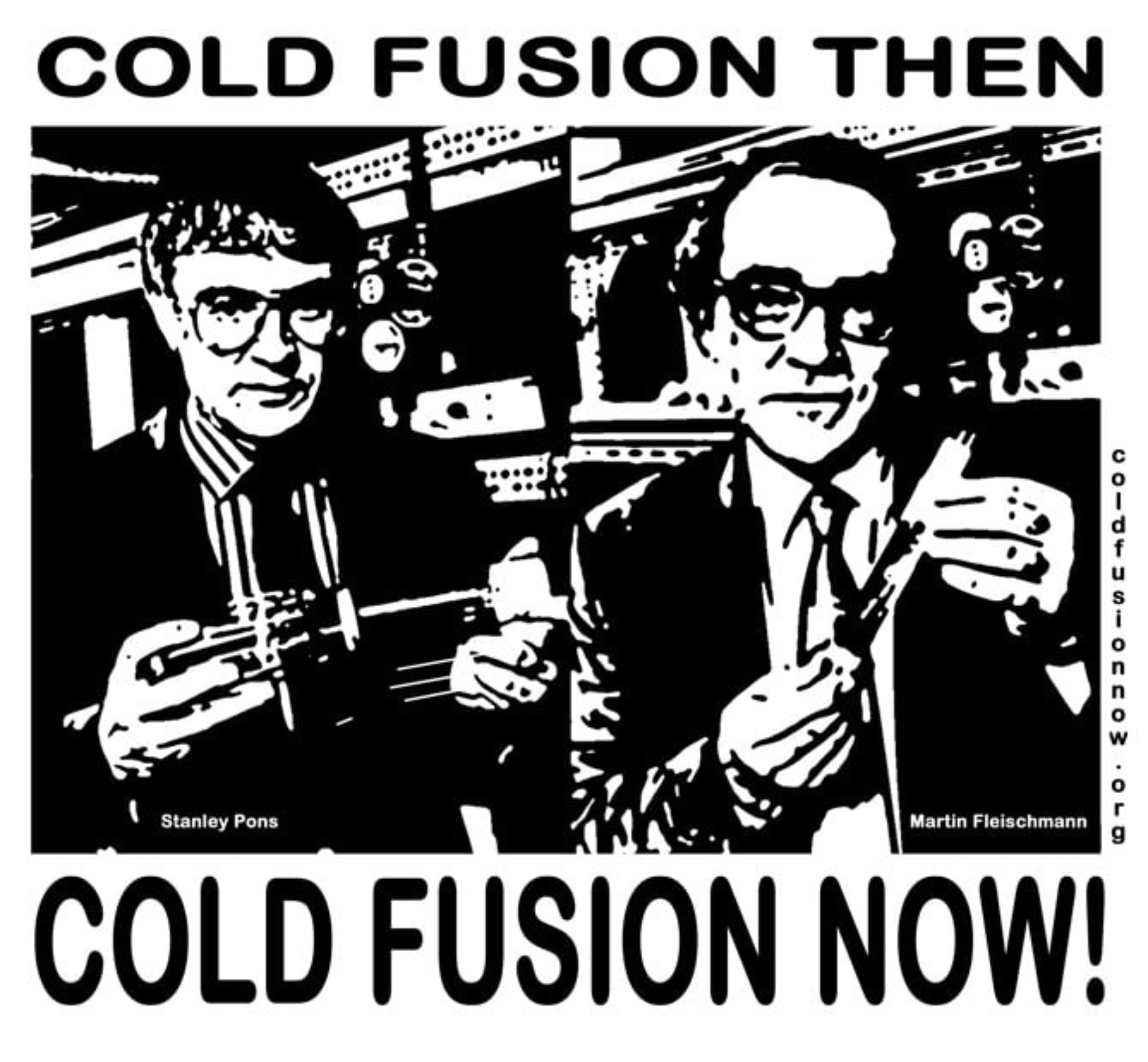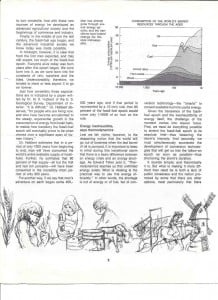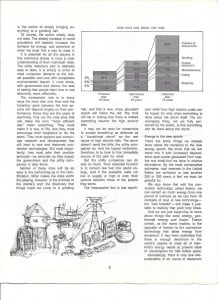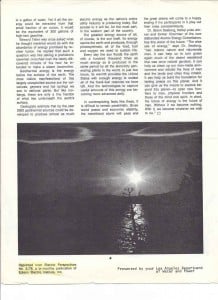I love old information.
Rather, I love the way old information is presented, for the very act of noticing that a document is old has littler to do with its content than the presentation, the words, the pictures, the style, the medium.
In 1976, the Viking 2 spacecraft landed on Mars, and Apple Computer was formed.
In 1976, the gold price hit a bottom of $102 per ounce, oil averaged $12.37 a barrel, and the United States celebrated its 200th birthday.
And in that year, M. King Hubbert, who in 1956 correctly predicted the peak of oil production in the US would be between 1965 and 1970 (peak production in the lower 48 occurred 1970/1), made a video clip explaining his idea of Peak Oil to the public.
Also that year, Edison Electric Institute, Inc, the Association of Shareholder Owned Electric Companies in the US, put out a pamphlet describing the changes that would be occurring in our lives due to the depletion of fossil fuels.
Entitled The Transitional Storm -Or The Changing Energy Epoch, the four-page pamphlet has a brief history of human energy use, describing how each energy epoch has transitioned from one type of fuel to another somewhat smoothly, meaning that historically, humanity has been able to discover new forms of power generation and fuel before the previous technologies fuel ran out.
In other words, we found coal before all the trees were burned. We found oil before all the coal was burned.
However, they go on to say, “Today it is different.”
“The fossil-fuel epoch and the next age are not completely interlocking. There is some overlap, but there also is a large supply-demand gap, and we call this gap a “transitional storm”-you’ve heard it called an “Energy Crisis.”
The essay quotes M. King Hubbert as saying that a full 80% of the total global supply of fossil fuel will have been consumed in “the incredibly short period of only 300 years.”
In other words, the Oil Age is on the down-slope.
But there is hope for the future. According to Edward Teller, the laws of thermodynamics say our energy sources are virtually inexhaustible. From page 2,
“As Edward Teller puts it, “Thermodynamics teaches us that unlimited energy exists. What is missing is the practical way to use this energy efficiently.” In other words, the shortage is not of energy or of fuel, but of conversion technology-the “smarts” to convert available fuel into useful energy.”
The pamphlet notes the various forms of energy we could transition to, including wind, solar, and hydro, as well as nuclear fission and fusion.
The fuel for fusion, deuterium, gets special note.
“Interestingly, there is only one two-hundredths of an ounce of deuterium in a gallon of water. Yet if all the energy could be extracted from that small fraction of an ounce, it would be the equivalent of 300 gallons of high-test gasoline.”
The essay also make the claim that there’s enough deuterium in the oceans to last 500 million years.
Thus our problem is not shortage of fuel, it’s a crisis of conversion of energy.
Edison Electric puts the responsibility for transition squarely on the shoulders of the public who must, as consumers of electricity, “support and encourage research and development that will lead to new and improved conversion technologies.”
“But most importantly, they must take their position seriously-as seriously as they expect the government and the utility companies to take theirs.”
I wonder, under what circumstances, I would get a warning like this from a power company today? Thirty-five years later, “the transitional storm” is upon us, and thirty-five years later, the public has still not been educated enough to take this situation seriously.
As oil prices continued to drop into the 1980s, the transitional storm was forgotten, and we built more infrastructure based on fossil fuels. We didn’t prepare for “a new energy epoch” like we should have, and now, we’re going to have to scramble to develop solutions fast.
What is the solution?
For ultra-clean high energy-density power, there is only one choice, low-energy nuclear reactions, or cold fusion, using deuterium as a fuel.
Nuclear fission power plants that exist today are dirty and dangerous. They take a decade to build with enormous costs financially and environmentally.
Meanwhile, conventional hot nuclear fusion has not advanced enough to be a viable alternative. It requires a complex engineering structure to potentially provide a centralized power source with a high capital cost.
Cold fusion does not produce radioactive waste, and is decentralized, with fuel available to anyone who can access water. The nuclear fusion reaction occurs inside a small piece of metal, giving a super-high-energy density per unit volume of metal.
This technology has been neglected for the past two decades with 0% of the funding that hot fusion has received from the Department of Energy, and we need to remedy this immediately.
The essay ends with Dr. Glenn Seaborg, a Nobel prize-winning nuclear chemist and advocate for the peaceful use of nuclear power (albeit the fission kind), though no friend to cold fusion:
“The wise use of energy,” says Dr. Seaborg, “can restore nature and rejuvenate man. It can help us to turn green again much of the desert wasteland that was once natural gardens. It can help us clean up our man-made environment and rebuild the lives of men and the lands and cities they inhabit. It can help us build the foundation for lasting peace on this planet. And it can give us the means to explore beyond this planet-to open new frontiers to man, physical frontiers and those of the mind and spirit.
In short, the future of energy is the future of man. Without it we become nothing. With it, we become whatever we wish to be.”
Click the images below to open a .pdf of each page of this document in a new tab.
And check out the graphic on page 3 “How Man Has Spent His Time”. Only 10% of Industrial man’s time was spent working???
How things have changed… Got to get to work! Bye!





